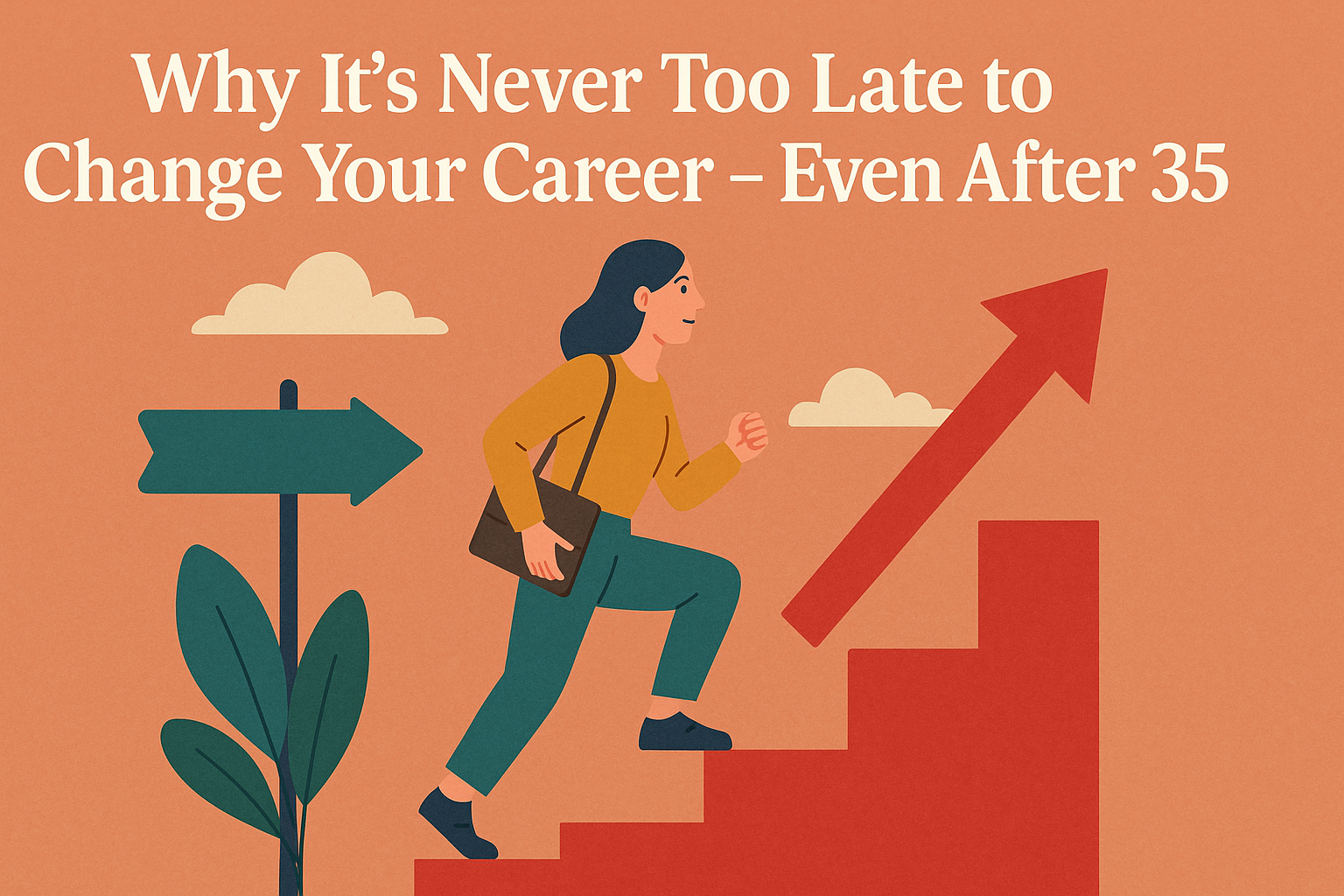Why It’s Never Too Late to Change Your Career – Even After 35

Understanding the Desire to Change Your Career
Turning 35 often triggers reflection. You may feel that your current job no longer excites you, or perhaps your priorities have shifted toward flexibility, higher purpose, or better work–life balance. The good news is that experience is an asset, not a barrier. You already possess transferable skills such as communication, problem solving, and leadership. Recognising these strengths is the first step when you decide to Change Your Career.
Overcoming the Fear of Starting Over
Fear usually shows up in three forms: financial uncertainty, skill gaps, and social pressure. Begin by reframing the narrative. Instead of “I’m behind,” tell yourself, “I’m bringing 15 years of real-world insight to a new field.” Research by the Harvard Business Review found that mid-career switchers outperform entry-level hires in people management and strategic thinking. Confidence grows when you see the data.
To ease financial worry, build a six-month emergency fund and explore part-time learning options that let you earn while you train. Tackle skill gaps with online micro-credentials, workshops, or mentorship. Finally, surround yourself with supporters. A single encouraging voice can drown out a dozen doubts.
Steps to Successfully Change Your Career After 35
- Clarify your why: Write down what you like and dislike about your current role. Match it against industries that value your strengths.
- Assess your skills scientifically: A psychometric test or a Multiple Intelligence-based assessment offered by Elysian Inspires pinpoints abilities you might overlook.
- Fill critical gaps: Enrol in targeted courses on platforms like Coursera or LinkedIn Learning. Short programmes in digital marketing, data analytics, and project management are popular pivot points.
- Build a transition network: Attend industry meet-ups, join LinkedIn groups, and schedule informational interviews. Most career shifts happen through referrals, not job boards.
- Create a bridge role: Seek positions that blend your current expertise with new skills. For example, a schoolteacher moving into ed-tech can start as a customer success specialist.
- Refresh your personal brand: Update your CV, craft a skills-focused LinkedIn headline, and publish thought-leader posts in your target domain.
- Seek professional guidance: A single session of career counselling in chennai can streamline your plan, save time, and prevent costly missteps.
Key Takeaway
At 35 or 55, the ability to Change Your Career depends far more on mindset and strategy than age. Experience gives you credibility, networks, and resilience that younger professionals are still building. With clear goals, practical upskilling, and the right guidance, you can design a fulfilling second act.
Take a decisive step today. Book your personalised session with Elysian Inspires and discover how you can Change Your Career with confidence.
Frequently Asked Questions
Is 35 too old to start a new career?
Absolutely not. Many employers value maturity, reliability, and seasoned judgement. Studies show that professionals who pivot at 35–45 often advance faster because they apply past lessons to new challenges.
How can I prepare financially before I change my career?
Draft a realistic transition budget. Cut discretionary spending, build an emergency fund covering six months of expenses, and explore scholarships or employer-sponsored training to minimise debt.
Which careers are easier to transition into after 35?
Fields that reward soft skills and domain knowledge—such as project management, HR, UX design, digital marketing, and business analysis—are common landing spots. They often welcome diverse backgrounds and offer clear certification paths.
Can online courses help me make a smooth career change?
Yes. Reputable platforms provide industry-recognised certificates that showcase competence without a multi-year degree. Combine coursework with practical projects to demonstrate value to prospective employers.
